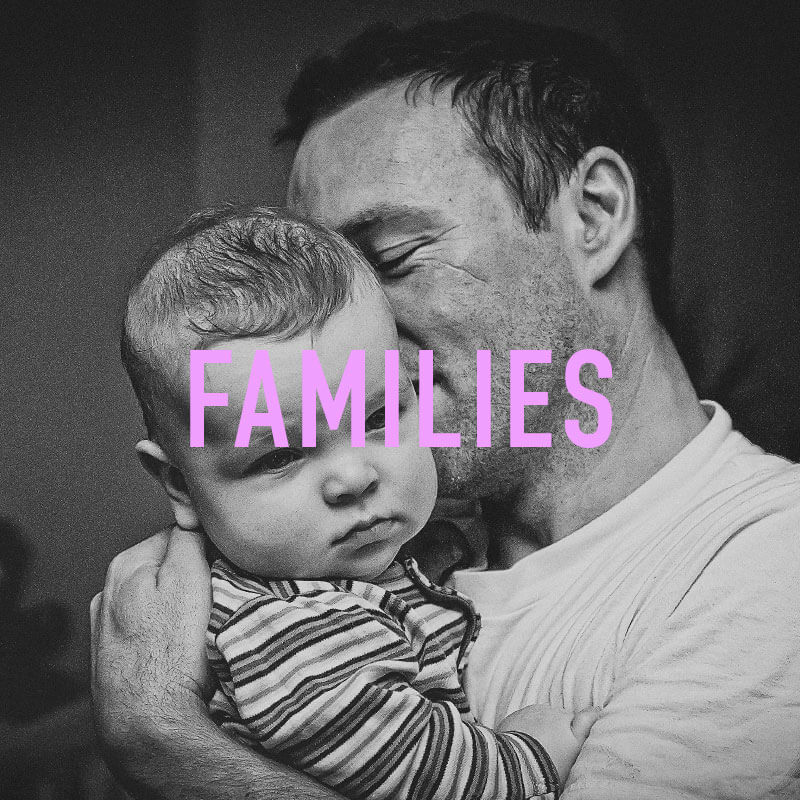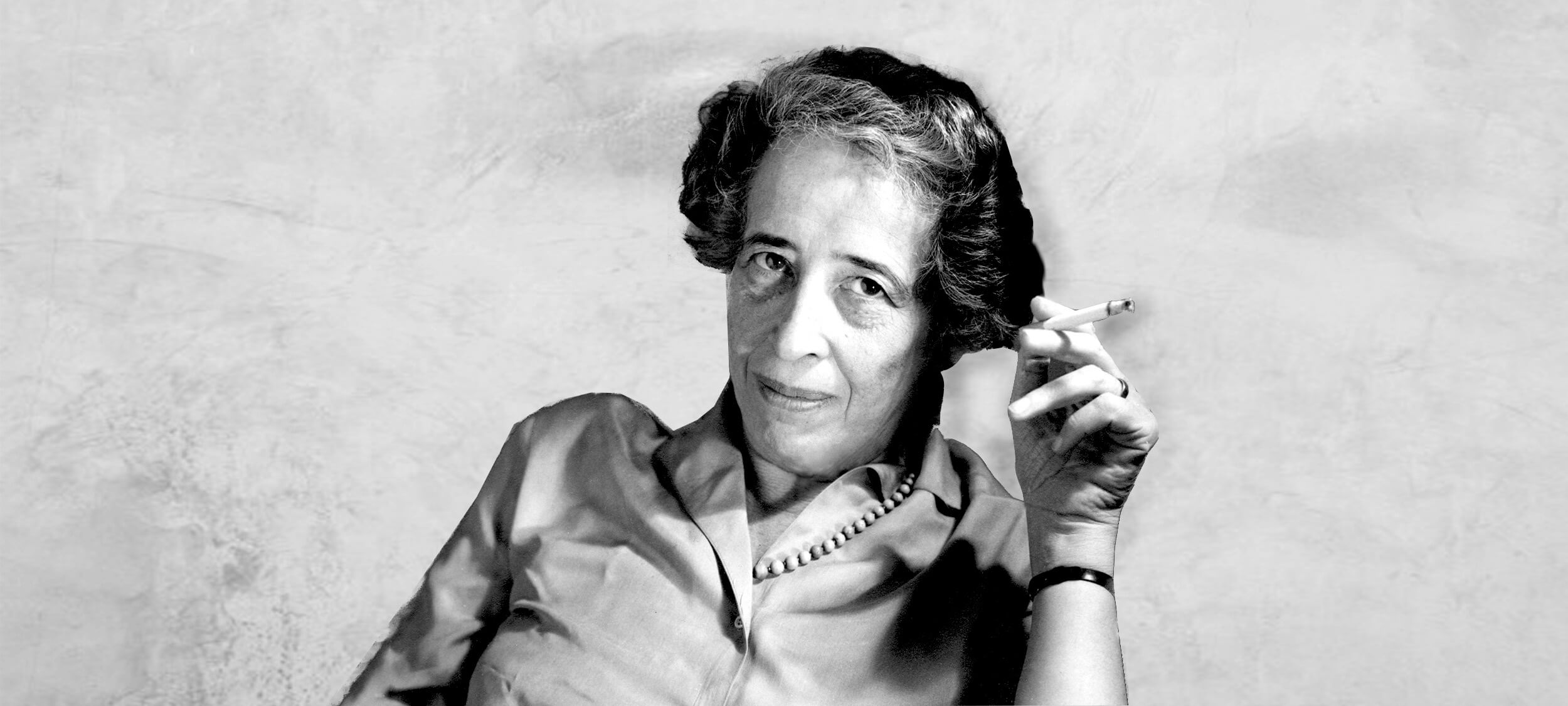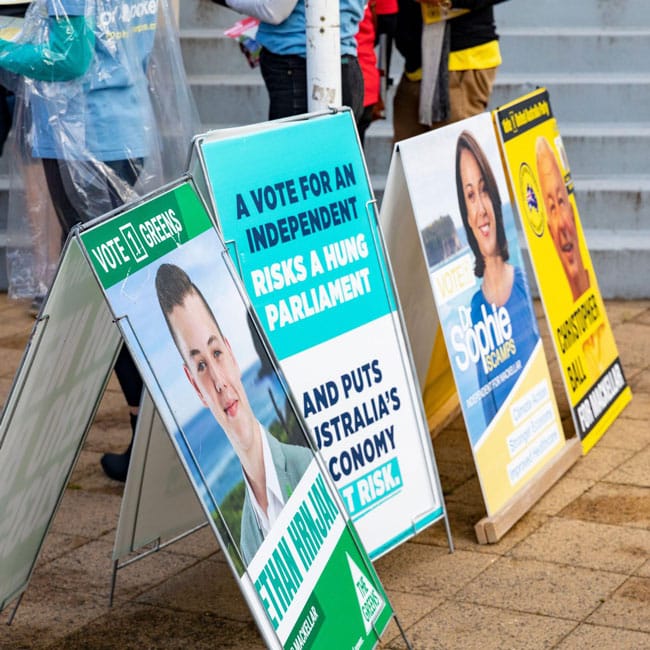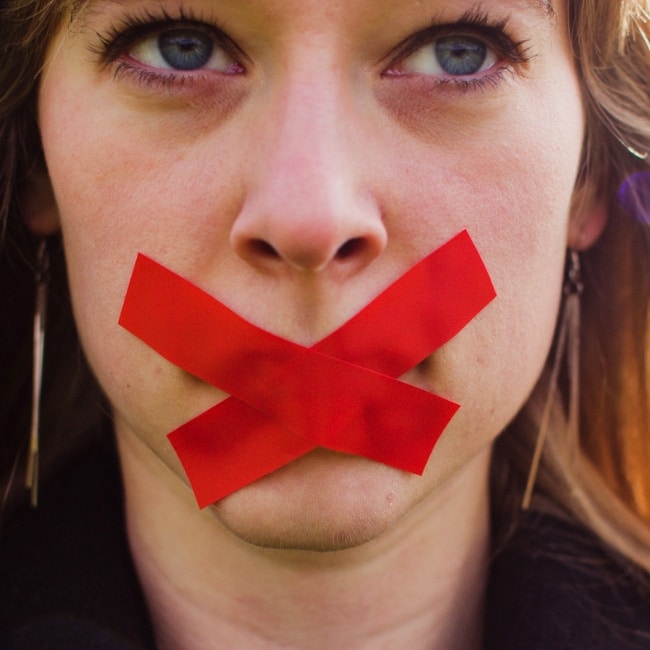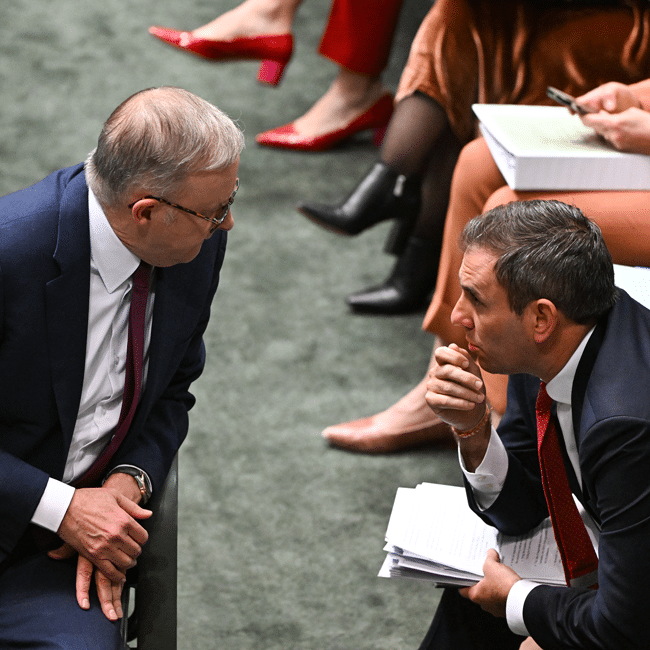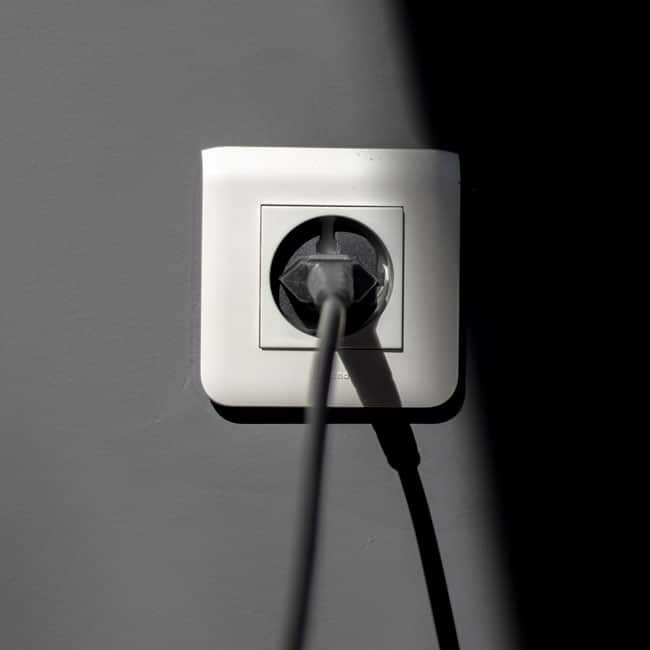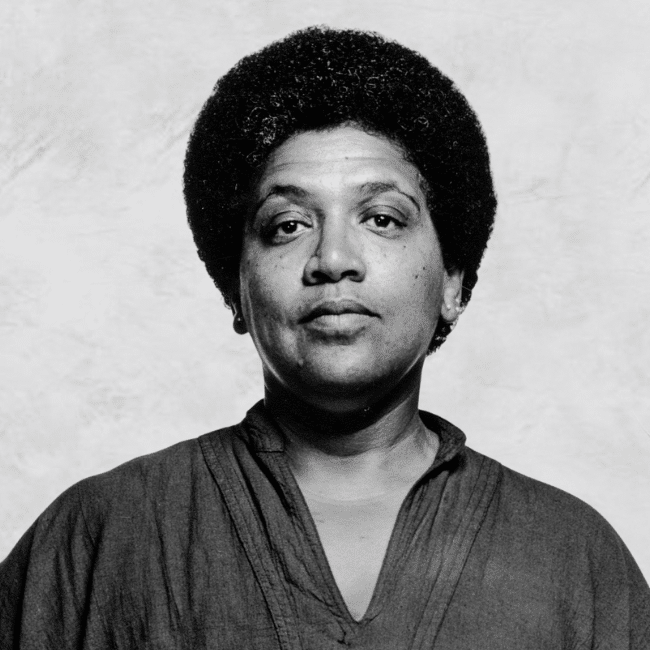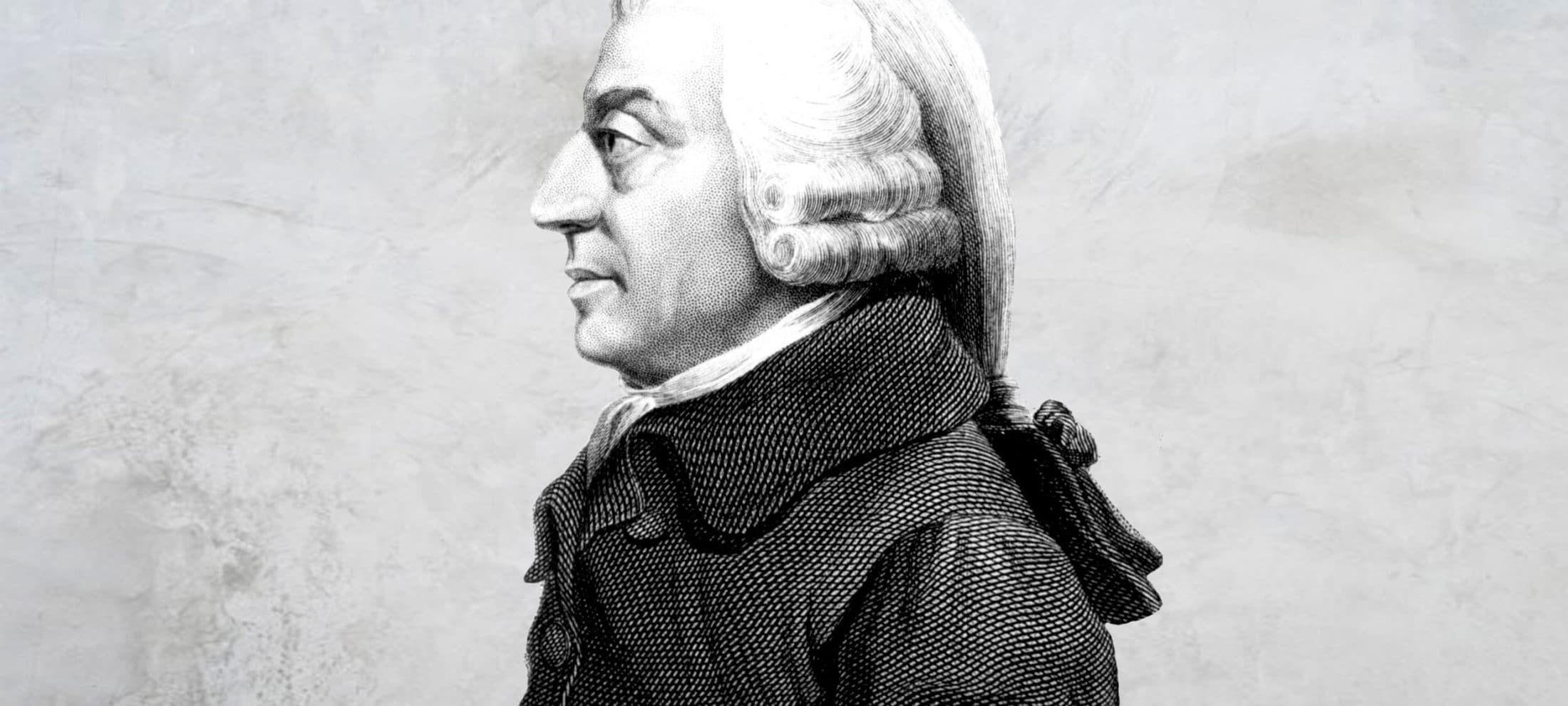Taking the cynicism out of criticism: Why media needs real critique

Taking the cynicism out of criticism: Why media needs real critique
Opinion + AnalysisSociety + CulturePolitics + Human Rights
BY Ruby Hamad 25 MAR 2024
Increasingly, it appears that constructive criticism and cynical attacks are being conflated. And perhaps it’s nowhere more apparent or more troubling than when it comes to criticism of the news media.
In 1993, Edward Said stunned the world of cultural criticism with his revolutionary critique of Jane Austen’s Mansfield Park. The literary professor and avowed lover of the Western literary canon reviewed Austen in a way like never before: as a cultural artefact that reflected and embodied the British imperial ethos.
Austen, he wrote, “synchronises domestic with international authority, making it plain that the values associated with such higher things as ordination, law, and propriety must be grounded in actual rule over and possession of territory.”
As both a critic and a fan, Said was surprised at accusations he was discrediting Austen. Rather, he was demonstrating that even novels ostensibly about domesticity could not be separated from the politics of the time.
Said showed that art not only can but must be both enjoyed and critiqued.
That criticism must, in other words, be constructive.
Said’s approach to criticism is more needed now than ever. Increasingly, it appears that constructive criticism and cynical attacks are being conflated.
I find this nowhere more apparent or more troubling than when it comes to criticism of the news media.
After The New York Times opened an Australian bureau several years ago, some readers and journalists complained its coverage was patronising. Such complaints, journalist and former Times contributor Christine Keneally said, indicated that locals felt it “considered itself superior to the local press”.
As I wrote at the time, “grievances included needlessly explaining Australia to Australians, engaging in parachute journalism, and not employing enough local journalists.” The newspaper wasn’t doing anything that Australian journalists don’t do as a matter of routine when covering foreign places. Whether wittingly or unwittingly, English-language media often assume an air of authority as they “explain” the local culture and events to their audience back home, adopting an almost anthropological tone that has been frequently and hilariously satirised.
The problem, then, was not the Times per se but Western approaches to journalistic “objectivity” that equate their own interpretations with fact.
Consequently, the criticism centred on mocking the Times rather than interrogating the broader problem of Western journalistic processes and assumptions. This merely served to make the Times defensive and resistant to the criticism.
It is futile to simply demand that journalists “do better” on certain issues or to single out specific publications when the problem so often comes down to Western media conventions as a whole.
How then should we go about it? Robust public constructive criticism of the press is vital. Not least because:
“There is everywhere a growing disillusionment about the press, a growing sense of being baffled and misled; and wise publishers will not pooh-pooh these omens.”
This quote could easily have been written last week but comes from legendary American editor Walter Lippmann in his 1919 essay ‘Liberty and the News’.
Lippmann urged fellow journalists not to reject criticism but use it as a means to improve. “We shall advance when we have learned humility,” he predicted hopefully. “When we have learned to seek truth, to reveal it and publish it; when we care more for that than for the privilege of arguing about ideas in a fog of uncertainty.”
Some of this antipathy towards critique could perhaps be explained by a lack of consensus of what critique actually is. The job of a critic is often misrepresented as being merely “to criticise”, telling us what is good and bad. However, the true role of a critic, explains culture writer Emily St. James, is “to pull apart the work, to delve into the marrow of it, to figure out what it is trying to say about our society and ourselves”.
Social media complicates our understanding further because of the difficulty of in reading people’s tone and intent online. Then there is also the unfortunate fact that social media is so often used deliberately as a platform to launch cynical, shaming attacks, which makes it even more challenging to distinguish criticism from cynicism.
This can be applied to the news media as easily as it can to novels or films.
As media scholar James W Carey observed, and as Said demonstrated in his critique of Austen, genuine criticism is not a “mark of failure or irrelevance, it is the sign of vigour and importance”.
Over many decades historians and scholars have agreed on the shape criticism should take. Namely, that criticism is an ongoing process of exchange and debate between the news media and its audience. That it should be grounded in knowledge rather than solely in emotion. That it should not be pedantic, petty, and shaming.
Media researcher Wendy Wyatt defined it simply as “the critical yet noncynical act of judging the merits of the news media”.
And as media scholar James W Carey observed – and Said demonstrated with Austen – genuine criticism is not a “mark of failure or irrelevance, it is the sign of vigour and importance”.
Lippmann and Wyatt advocated for criticism of the press by the press, such as a public editor or ombudsman hired by the publication solely to address readers’ concerns and complaints.
Others including Carey argued that true criticism can come only from the outside; from academics or authors that are not on the payroll to ensure fairness, and minimises the possibility of retribution. Many journalists, they warn, have been ostracised by their peers for daring to critique their own.
Much of the onus, then, falls to editors and publishers to open up the news media to constructive criticism, and to not “pooh-pooh” our concerns. But we, as individuals and as a society, all bear some responsibility for fostering a social climate that encourages such critique.
If we are to demand that journalists heed our criticism, we must also enter into it in good faith. Like journalism itself, any and all criticism should also be weighed up on its merits. Our ultimate goal should not be merely to shame journalists but to transform the news media in an ongoing process of reform and improvement.

Ethics in your inbox.
Get the latest inspiration, intelligence, events & more.
By signing up you agree to our privacy policy
You might be interested in…
Opinion + Analysis
Politics + Human Rights, Relationships
Who’s your daddy?
Opinion + Analysis
Business + Leadership, Society + Culture
The Ethics Institute: Helping Australia realise its full potential
Explainer
Business + Leadership, Politics + Human Rights
Ethics Explainer: Liberalism
Opinion + Analysis
Health + Wellbeing, Politics + Human Rights
Don’t throw the birth plan out with the birth water!
BY Ruby Hamad
Ruby Hamad is a journalist, author and academic. Her nonfiction book White Tears/Brown Scars traces the role that gender and feminism have played in the development of Western power structures. Ruby spent five years as a columnist for Fairfax media’s flagship feminist portal Daily Life. Her columns, analysis, cultural criticism, and essays have also featured in Australian publications The Saturday Paper, Meanjin, Crikey and Eureka St, and internationally in The Guardian, Prospect Magazine, The New York Times, and Gen Medium.
I changed my mind about prisons

I changed my mind about prisons
Opinion + AnalysisPolitics + Human RightsHealth + WellbeingSociety + Culture
BY Sophie Yu 14 MAR 2024
Every time the face of a criminal flashed up on the screen of our flatscreen TV, my parents would never hesitate to condemn the perpetrator, and demand the prolonged imprisonment of the thief or shoplifter.
For violent crimes, the death penalty would often come into conversation.
My siblings and I, perched on the leather couch, would listen open-mouthed, our young minds unable to comprehend how anyone would even consider such an act. I thought to myself: anyone who went to jail was inherently evil, different to normal people.
Yet, as I grew older and started to reach beyond the sheltered confines of our upper-middle-class home, that perspective gradually fell apart.
I have come to realise that our prison system is dysfunctional, a warped interpretation of right and wrong. A system designed for retribution, that essentially calls an end to a person’s potential in life, is both ethically and practically malfunctioning. Intended to benefit society through rightful punishment and restorative justice, it is instead one of the largest perpetrators of discrimination and often even worsens a prisoner’s life after release.
For instance, consider the story of Wesley Ford: a gay Whadjuk/Ballardong man, who battled with a drug addiction that fuelled 13 prison stints over two decades. He was just one of the 60% of Australian prison detainees who have been previously incarcerated. We have one of the highest recidivism rates in the world and, in a world where over half of prisoners expect to be homeless after release, and it is nearly impossible to secure employment, is that really such a surprise?
Our sentences do not tend to be harsh enough to fully realise the power of deterrence, nor are the quality or quantity of support services anywhere near sufficient to rehabilitate offenders.
In the words of Ford, ‘There were services there, but it is such a farce, because … they are so few and far between hardly anyone can get onto them.’
This also promotes a cycle of crime, further disadvantaging minority groups. Despite making up only 2% of the overall population, Indigenous Australians constitute nearly 30% of prisoners. They are twice as likely to have been refused bail by police before their first court appearance.
As for a solution, the harsher approach, employed by regimes such as Russia, is evidently unethical. Criminal behaviour must be punished, but the unnecessary imposition of prolonged sentences or even death penalties for minor offenders is closer to a violation of basic human rights, rather than the intended enforcement of justice. This is supported by various ethical frameworks, be it a utilitarian goal to preserve life, or the Christian belief in grace. Instead, especially for those who are low-risk offenders, restorative justice measures should be utilised to punish behaviour whilst also incentivising criminals to make better decisions. This approach has been proven to work, as evidenced by the Norwegian system.
With a system of small, community facilities that focus on rehabilitation and reintegration into society, Norway’s prison system ensures that prisoners do not lose their humanity and dignity whilst incarcerated. The facilities are typically located close to the inmates’ homes, ensuring that they can maintain relationships, and the cells resemble dormitories rather than jails. Norwegian prisoners have the right to vote, receive an education, and see family.
This approach may seem radical, but it has been incredibly successful in Norway. The Scandinavian nation has one of the lowest recidivism rates (20% within 2 years), a dramatic decrease since the 1990s (70-80%, like modern-day USA) when it had a more traditional system. Furthermore, ensuring that prisoners can live normal lives after release benefits the economy. Fewer people in prison means more capable adults available for employment, and many prisoners even leave with additional skills, leading to a 40% increase in employment rates after prison for previously unemployed inmates.
Yet, one drawback is the higher expenses of this system. Norway spends an average of 93,000 USD per year per prisoner, which is potentially unviable for countries with larger prison populations. Such a proposal would also likely be controversial amongst voters, unhappy with their taxpayer dollars being spent on criminals.
And might it be unethical to divert taxpayer funds to lawbreakers? To what extent does one deserve forgiveness? When does an act become unforgivable?
The issue is extremely complex, and realistically, a slightly different setup might be necessary for each unique society. Yet, the approach is undeniably more ethical, and benefits of rehabilitation are well-documented. In Australia, a country with a low population and high recidivism rates, success is highly likely.
Through the recognition that lawbreaking does not definitively indicate moral character and that factors such as socioeconomic status, bias, and even racism can impact the likelihood of incarceration, we can begin to see prisoners as human, too.
Forgiveness is a moral imperative and this is something that our prison system should reflect.
‘I changed my mind about prisons‘ by Sophie Yu is one of the Highly Commended essays in our Young Writers’ Competition. Find out more about the competition here.

Ethics in your inbox.
Get the latest inspiration, intelligence, events & more.
By signing up you agree to our privacy policy
You might be interested in…
Opinion + Analysis
Business + Leadership, Politics + Human Rights
Hunger won’t end by donating food waste to charity
Opinion + Analysis
Health + Wellbeing, Relationships
Australia’s paid parental leave reform is only one step in addressing gender-based disadvantage
Opinion + Analysis
Relationships, Society + Culture
The #MeToo debate – recommended reads
Opinion + Analysis
Health + Wellbeing, Relationships
Philosophy must (and can) thrive outside universities
BY Sophie Yu
Sophie Yu is a Year 12 student at Redlands, Sydney, where she studies the International Baccalaureate. She is interested in philosophy, culture, and international affairs, and explores these through the mediums of public speaking, writing and the visual arts.
'The Zone of Interest' and the lengths we'll go to ignore evil

‘The Zone of Interest’ and the lengths we’ll go to ignore evil
Opinion + AnalysisSociety + CulturePolitics + Human Rights
BY Joseph Earp 26 FEB 2024
The Zone of Interest is not really a Holocaust film. At least not in the traditional sense.
Unlike Schindler’s List, there are no scenes set in a concentration camp – no footage of gas chambers, or slaughter. And unlike The Pianist, the focus is not on suffering victims. Indeed, the victims are entirely offscreen, only present as a sort of ambient, sometimes audible, force. Our cast of characters here are a German family, living an ordinary life – or as ordinary as a life can be, when the patriarch, Rudolf Höss (Christian Friedel) is the commandant of Auschwitz, which lies just over the family’s garden wall.
The film features no literal violence whatsoever. Occasionally, we glimpse smoke from Auschwitz’s chimneys, cutting through the air; tiny touches, and the only clues that we are literally next door to the camp.
Instead, the genre that The Zone of Interest falls into – and cunningly undermines – is the domestic drama. Strip the Holocaust context out of the film, and you have a fairly humdrum story of a man trying to keep his family and his career together; working to raise his children, and rise up the ranks of his job. Insert that context back in, and the humdrum becomes terrifying.

The result is a film that tackles the question, “How did the Holocaust happen?”. It is interested in the mechanics of the slaughter – how it was enacted, and by whom. The answer lies in Höss. He has, it seems, emptied his work of all emotional context. It’s just a job to him. There are only very rare points where we see him express something like remorse – and even then, such outbursts feel uncontrolled; unconscious. In that way, The Zone of Interest has much to tell us not just about the Holocaust, but about moral responsibility, and the lengths people can go to avoid it.
Empathy and obligation
Höss has become so inured to his work – so horrifyingly, disturbingly used to it – that he acts like it has no moral quality at all. He seems to have no feelings, no empathy, and more than that, no knowledge that he even should have empathy.
This dispassionate quality is a common basis of those who avoid moral responsibility. When we do not emotionally feel the pain of others, through empathy, we will not have any motivation to avoid inflicting that pain. This is the heart of moral sentimentalism. If we are emotionally blind to suffering – even if we are aware that it is happening – we will not be compelled to act to stop it. Simply put, without emotions and empathy, our moral obligations lose their force.
Indeed, Höss’s lack of moral emotions makes him the successful endpoint of the Nazi propaganda machine. This machine worked hard to try and target the emotions of Nazi guards, and in the process neuter natural sympathetic responses. Most notably, Nazi propaganda dehumanised the Jewish population, painting Jews as fundamentally different from human beings. The comics writer Art Spiegelman attributes the following quote to Hitler, which sums up the position: “The Jews are undoubtedly a race, but they are not human.”
In this way, Nazi propaganda worked on “perceived similarity.” See, psychological studies suggest that empathy fires when we witness something that feels similar to our own experiences. We have to recognise the pain of others as meaningfully like our own in order to be sympathetic to it. This is why we don’t like seeing animals like dogs in pain – we anthropomorphise them, and see their suffering as “human”. It is also while most of us will not flinch at the torment of a bug. We think of dogs as like us, and bugs as not. The outward signs of a daddy longlegs in distress seem alien enough to us – different enough from our own – that our natural empathy is not triggered.
For Nazis like Höss, Jewish people were perceived as so alien – so dissimilar from other human beings – that the suffering of Jewish people came with no associated moral obligation. This is what we see in The Zone of Interest. Höss knows he is sending Jewish people to their deaths – how could he not? It is happening right next door – but he feels nothing about this murder. Höss is not maintaining a literal distance from the horror he is enacting, but he is maintaining an emotional distance, and this is what allows him to do what he does.

A reminder of what we share
This focus on emotional distance is what makes The Zone of Interest so timely – what expands its reach beyond the Holocaust.
We are all occasionally guilty of seeing those who suffer as being “different from us”; their pain as alien, or foreign. Those in warzones; refugees; victims of famine in the Third World – we can all see these people as being divorced from our regular life, emotionally different from us, and as a result, we can unconsciously discharge our obligation to them.
The antidote to this disaffection – to the emotional coolness that can stop us from helping when we need to – is reminding ourselves of what we share with others. It is about tapping into our essential humanity. The philosopher David Hume put this essential humanity simply – he believed as human beings, we all have an aversion to pain, and an attraction to pleasure. If we remember that, and keep in mind that all human beings want to live pain-free lives, then we will see the suffering of others as a great transgression, and will work harder to help when we can.
Indeed, this is the strange optimism buried at the heart of The Zone of Interest. The film suggests, very subtly, that we have a natural connection to those around us; that this shared wellspring of humanity can never be entirely vanquished.
Even Höss, who has worked so hard to completely distance himself from the suffering he is directly inflicting, is unable to escape his natural sense of empathy – in a key moment of the film, he has a kind of physical breakdown, suddenly overcome by all that he has tried not to see. There, in that scene, is buried a form of hope: even against all odds, sometimes, human connection survives. Because human feeling survives. And that is where our moral responsibility lives.

Ethics in your inbox.
Get the latest inspiration, intelligence, events & more.
By signing up you agree to our privacy policy
You might be interested in…
Opinion + Analysis
Society + Culture
What does Adolescence tell us about identity?
Big thinker
Politics + Human Rights
Big Thinker: Hannah Arendt
Opinion + Analysis
Politics + Human Rights
A good voter’s guide to bad faith tactics
Opinion + Analysis
Health + Wellbeing, Politics + Human Rights, Relationships, Science + Technology
The value of a human life
BY Joseph Earp
Joseph Earp is a poet, journalist and philosophy student. He is currently undertaking his PhD at the University of Sydney, studying the work of David Hume.
Why sometimes the right thing to do is nothing at all

Why sometimes the right thing to do is nothing at all
Opinion + AnalysisPolitics + Human RightsSociety + Culture
BY Dr Tim Dean 8 FEB 2024
How a 1990s science-fiction show reminds us that just because we can do something, it doesn’t always mean we should.
Captain Jean-Luc Picard commands the USS Enterprise-D, a 600-metre-long starship that runs on antimatter, giving it virtually unlimited energy, and wielding weapons of devastating power.
In its journeys across the stars, depicted in Star Trek: The Next Generation, the crew of the Enterprise-D is often forced to draw on all its resources to overcome tremendous challenges. But that’s not what the show is really about.

If there’s one theme that pervades this iteration of Star Trek, it’s not how Picard and his crew use their prodigious power to get their way, it’s how their actions are more often defined by what they choose not to do. Countless times across the 176 episodes of the show, they’re faced with an opportunity to exert their power in a way that benefits them or their allies, but they choose to forgo that opportunity for principled reasons. Star Trek: The Next Generation is a rare and vivid depiction of the principle of ethical restraint.
Consider the episode, ‘Measure of a Man’, which sees Picard defy his superiors’ order to dismantle his unique – and uniquely powerful – android second officer, Data. Picard argues that Data deserves full personhood, despite his being a machine. This is even though dismantling Data could lead to the production of countless more androids, dramatically amplifying the power of the Federation.

One of the paradigmatic features of The Next Generation is its principle called the Prime Directive, which forbids the Federation from interfering with the cultural development of other planets. While the Prime Directive is often used as a plot device to introduce complications and moral quandaries – and is frequently bent or broken – its very existence speaks to the importance of ethical restraint. Instead of assuming the Federation’s wisdom and technology are fit for all, or using its influence to curry favour or extract resources from other worlds, it refuses to be the arbiter of what is right across the galaxy.
This is an even deeper form of ethical restraint that speaks to the liberalism of Gene Roddenberry, Star Trek’s creator. The Federation not only guides its hand according to its own principles, but it also refuses to impose its principles on other societies, sometimes holding back from doing what it thinks is right out of respect for difference.
The 1990s was another world
There’s a reason that restraint emerged as a theme of Star Trek: The Next Generation. It was the product of 1990s America, which turned out to be a unique moment in that country’s history. The United States was a nation at the zenith of its power in a world that was newly unipolar since the collapse of the Soviet Union.
It was an optimistic time, one that looked forward to an increasingly interconnected globalised world, where cultures could intermix in the “global village,” with its peace guarded by a benevolent superpower and its liberal vision. At least, that was the narrative cultivated within the US.
In a time where the US was unchallenged, moral imagination turned to what limits it ought to impose on itself. And Star Trek did what science fiction does best: it explored the moral themes of the day by putting them to the test in the fantasy of the future.
Today’s world is different. It’s now multipolar, with the rise of China and belligerence of Russia coinciding with the erosion of America’s power, political integrity and moral authority. The global outlook is more pessimistic, with the shadow of climate change and the persistence of inequality causing many to give up hope for a better future. Meanwhile, globalisation and liberalism have retreated in the face of parochialism and authoritarianism.
When we see the future as bleak and feel surrounded by threats, ethical restraint seems like a luxury we cannot afford. Instead, the moral question becomes about how far we can go in order to guard what is precious to us and to keep our heads above literally rising waters.
The power not to act
Yet ethical restraint remains an important virtue. It’s time for us to bring it back into our ethical vocabulary.
For a start, we can change the narrative that frames how we see the world. Sure, the world is not as it was in the 1990s, but it’s not as bleak as many of us might feel. We can be prone to focusing on the negatives and filling uncertainties with our greatest fears. But that can distort our sense of reality. Instead, we should focus on those domains where we actually have power, as do many people living in wealthy developed countries like Australia.
And we should use our power to help lift others out of despair, so they’re not in a position where ethical restraint is too expensive a luxury. Material and social wealth ultimately make ethics more affordable.
Just as importantly, restraint needs to become part of the vocabulary of those in positions of power, whether that be in business, community or politics.
Leaders need to implicitly understand the crucial distinction between ought and can: just because they can do something, it doesn’t mean they should.
This is not just a matter of greater regulation. For a start, laws are written by those in power, so they need to exercise restraint in their creation. Secondly, regulation often sets a minimum floor of acceptable behaviour rather than setting bar for what the community really deserves. It also requires ethical literacy and conviction to act responsibly within the bounds of what is legally permitted, not just a tick from a compliance team.
If you have power, whether you lead a starship, a business or a nation, then the greater the power you wield, the greater the responsibility to have to wield it ethically, and sometimes that means choosing not to wield it at all.

Ethics in your inbox.
Get the latest inspiration, intelligence, events & more.
By signing up you agree to our privacy policy
You might be interested in…
Opinion + Analysis
Politics + Human Rights
Australia Day and #changethedate – a tale of two truths
Opinion + Analysis
Politics + Human Rights
Time for Morrison’s ‘quiet Australians’ to roar
READ
Society + Culture
6 dangerous ideas from FODI 2024
Explainer
Politics + Human Rights, Relationships
Ethics Explainer: Autonomy
BY Dr Tim Dean
Dr Tim Dean is Philosopher in Residence at The Ethics Centre and author of How We Became Human: And Why We Need to Change.
Political promises and the problem of ‘dirty hands’

Political promises and the problem of ‘dirty hands’
Opinion + AnalysisPolitics + Human RightsBusiness + Leadership
BY Simon Longstaff 6 FEB 2024
The decision by the Albanese Government to amend the form of the ‘Stage Three Tax Cuts’ – in breach of a much-repeated election promise – has not only unleashed the predictable storm of criticism from the Federal Opposition. More seriously, it has once again raised the question of integrity in politics. Yet, this is a rare case where a broken promise is in the public interest.
The making and breaking of political promises have a special significance in democracies like Australia. Governments derive their legitimacy from the consent of the governed – and consent is meaningless if it is the product of misleading or deceptive information. That is why politicians who deliberately lie in order to secure power should be denied office. It is also why prospective governments should be extremely cautious when making risky promises.
Yet, to argue that ‘keeping promises’ is an essential aspect of building and maintaining trust and legitimacy does not entail that a promise must be kept under any and every circumstance. There may be times when it is literally impossible to keep one’s word – for example, when a government commits to build a facility in a specific location that is later destroyed in a flood. And then there are circumstances where the context is so fundamentally altered as to make the keeping of a promise an act of folly or worse, irresponsibility. President Zelensky is bound to have made many promises to the people of Ukraine prior to the Russian invasion – at least some of which it would be irresponsible to keep in the middle of a war that threatens the very existence of the State.
Some people – notably those who adopt consequentialist forms of ethical reasoning – will argue that a promise should always be broken if, by doing so, a superior outcome is achieved. Others – notably those who place a higher value on acting in conformance with duty (irrespective of the consequences) – will argue that promises should never be broken. I am not inclined to line up with the ‘purists’ on either side. Instead, I prefer an approach in there is acceptance – across the political spectrum – that:
- There is a clear presumption in favour of keeping promises.
- Promises may be broken, but with extreme reluctance, when genuinely in the public interest to do so. That is the breach cannot be justified because it advances the private political interests of an individual or party.
- Any breach must be only to the extent necessary to realise the public interest – and no more.
- Those who break a promise should publicly acknowledge that to do so is wrong and that they are responsible for this choice. That is, they should not seek to deny or lessen the ethical significance of their choice.
Let’s consider how these criteria might be applied in the case of the ‘Stage Three Tax Cuts’.
The key question concerns whether or not it is demonstrably in the public interest to amend the legislated package as it stands. This question cannot be answered by looking at the economic and social implications alone. There is a real risk that trust in government will be eroded – even amongst those who benefit from the changes. And that further erosion in the ‘ethical infrastructure’ of the nation harms us all – not least because of its own tangible economic effects. So, that fact must be weighed in the balance when evaluating the public interest. However, Australia’s ethical infrastructure is also weakened by widening inequality – and by a growing sense of desperation amongst those who feel that their struggles are as much a product of unfairness as they are of forces beyond anyone’s control.
We should never forget that the current cost of living crisis is a form of ethical failure. It was neither inevitable nor necessary. At its root lie the choices made by those who control the levers of economic and political power. As things stand, the community does not trust them to ensure an equitable distribution of burdens and benefits. That widespread popular sentiment is reinforced by daily experience. Ethics – which deals with the way in which choices shape the world we experience – lies at the heart of the current crisis.
So, if changes to the ‘Stage Three Tax Cuts’ can be shown to tilt the table in favour of a more fair and equal Australia, it will have a strong claim to be in the public interest – not least by demonstrating that power can be exercised for the good of all rather than the influential few. Thus, some measure of trust and democratic legitimacy might be restored.
Two final points. First, even with the changes, every Australian taxpayer will continue to be better off than the day before the changes come into effect. To that extent, the policy satisfies the third of the conditions listed above.
Which brings me to the final test: will the Prime Minister and his colleagues accept that the breaking of a political promise is wrong-in-itself – even if necessary to advance the public interest? That would be the brave thing to do. It would involve Anthony Albanese in acknowledging one of the toughest problems in political philosophy – the problem of ‘dirty hands’. This is when a person of principle, as Albanese clearly is, decides to accept the burden of violating their own, deepest ethical sense for the good of others. Then their sense of the moral injury they do to themselves exceeds the bounds of all criticism directed to them by others. They are wounded – and they let us see this.
I believe Anthony Albanese when he says that ‘his word is his bond’. Now, he must own this commitment and acknowledge the cost he and his government must bear in serving the public interest. That will not spare him the pointed criticism of political opponents or of those who sincerely feel their trust betrayed or their interests diminished. However, that honest reckoning is the sacrifice a good person must sometimes make in order better to serve the people.
Image by Mick Tsikas, AAP Photo

Ethics in your inbox.
Get the latest inspiration, intelligence, events & more.
By signing up you agree to our privacy policy
You might be interested in…
Opinion + Analysis
Politics + Human Rights, Climate + Environment
What we owe each other: Intergenerational and intertemporal justice
Opinion + Analysis
Health + Wellbeing, Politics + Human Rights, Relationships
Ethics in a time of coronavirus
Big thinker
Politics + Human Rights, Relationships
Big Thinker: Eleanor Roosevelt
Opinion + Analysis
Business + Leadership
The value of principle over prescription
BY Simon Longstaff
Simon Longstaff began his working life on Groote Eylandt in the Northern Territory of Australia. He is proud of his kinship ties to the Anindilyakwa people. After a period studying law in Sydney and teaching in Tasmania, he pursued postgraduate studies as a Member of Magdalene College, Cambridge. In 1991, Simon commenced his work as the first Executive Director of The Ethics Centre. In 2013, he was made an officer of the Order of Australia (AO) for “distinguished service to the community through the promotion of ethical standards in governance and business, to improving corporate responsibility, and to philosophy.” Simon is an Adjunct Professor of the Australian Graduate School of Management at UNSW, a Fellow of CPA Australia, the Royal Society of NSW and the Australian Risk Policy Institute.
On truth, controversy and the profession of journalism

On truth, controversy and the profession of journalism
Opinion + AnalysisPolitics + Human RightsSociety + Culture
BY Simon Longstaff 25 JAN 2024
The recent dispute between Antoinette Lattouf and the ABC has brought into focus the need to address some fundamental questions about the role of journalism, in general, and professional journalists, in particular.
In my opinion, journalism is (or at least should be) practiced as a profession. This is not to ignore the fact that journalists work within an intensely commercial environment. But so do those lawyers, accountants, engineers, doctors and others who are employed by the private sector. For members of these professions, the fact that they work for, say, ‘industry’ in no way reduces the scope or depth of their professional obligations.
What marks out a profession is first, that its members are obliged to subordinate self-interest in the service of a public good. For example, as Officers of the Court, lawyers are bound by a paramount duty to assist in the administration of justice. This obligation comes before any duty to the client, to the profession or to oneself. Second, each profession exists in relation to its own ‘defining good’. Doctors and nurses work to secure the public good of ‘health’. Members of the profession of arms are supposed to secure the defining good of ‘peace’. Engineers aim for safety, etc. Two professions are oriented towards the good of ‘truth’ – accounting and journalism.
In both cases, the value of ‘truth’ is not in any sense vague or abstract. The preparation of accounts that are ‘true and fair’ is essential to the operation of free markets in which participants make informed decisions. As Adam Smith understood so well, markets can never be ‘free’ if participants lie, cheat, or use power oppressively. Yet, Smith also knew that merchants were always liable to employ such tactics in pursuit of self-interest. Thus, the need for the profession of accounting – made up of people who freely choose to abandon the pursuit of self-interest in service of the public interest and a higher ‘good’.
The role that accountants play in markets is mirrored by the role that journalists play in politics – and especially in democracies. The legitimacy of liberal democracies rests entirely on the consent of the governed. The only consent that counts is that which is free, prior and informed. And consent can never be informed if it is based on lies. That is why those politicians who resort to falsehood in the pursuit of power do so much damage to our democracy.
Unfortunately, just as some merchants can be relied upon to resort to deception in the pursuit of profits, so can some politicians be relied upon to do the same in the pursuit of victory. Professional journalists are supposed to help protect society from that risk – which is why they are so often lauded as the ‘fourth estate’.
I realise that there are some people who claim the title of ‘journalist’ while playing their own part in publishing or broadcasting falsehood, or who lack the ‘disinterested gaze’ that should be demanded of members of this profession. Yet, the fact that some (or even many) fail to uphold professional standards does not mean that the standard is either wrong or pointless.
Now, one might hope that those in charge of the ABC would champion the ideal of professional journalism as outlined above. If so, then you might also hope that they understood what is entailed by commitment to such an ideal. Finally, one might hope that the ABC would have discerned that a core commitment to the truth is fundamentally incompatible with the avoidance of controversy. Put simply, the truth is often controversial – especially when it challenges conventional belief or confronts power (which can reside in ‘settled’ ideas and prejudice as much as in the hands of individuals and institutions).
The truth is often controversial – especially when it challenges conventional belief or confronts power.
That is where I think the ABC ran off the rails. The moment it elevated the ‘avoidance of controversy’ as an end in itself, it set a standard that it is simply impossible for any professional journalist to uphold.
The noted German philosopher, Immanuel Kant, argued that “ought implies can”. That is, one is not morally obliged to do that which is impossible. This clearly applies in cases of actual impossibility (e.g. flying to Mars on the back of a bandicoot). However, I think the maxim also extends to cases where something is ‘impossible’ to do without violating the dictates of a well-informed (and well-formed) conscience. It is in this sense that professional journalists are placed in an impossible position if required to seek and publish the truth without ever courting controversy.
Image by Pat M2007

Ethics in your inbox.
Get the latest inspiration, intelligence, events & more.
By signing up you agree to our privacy policy
You might be interested in…
Opinion + Analysis
Politics + Human Rights, Relationships
Free markets must beware creeping breakdown in legitimacy
Opinion + Analysis
Business + Leadership, Politics + Human Rights
A foot in the door: The ethics of internships
Opinion + Analysis
Relationships, Society + Culture
Joker broke the key rule of comic book movies: it made the audience think
Opinion + Analysis
Society + Culture
Who’s afraid of the Big Bad Wolf? The story of moral panic and how it spreads
BY Simon Longstaff
Simon Longstaff began his working life on Groote Eylandt in the Northern Territory of Australia. He is proud of his kinship ties to the Anindilyakwa people. After a period studying law in Sydney and teaching in Tasmania, he pursued postgraduate studies as a Member of Magdalene College, Cambridge. In 1991, Simon commenced his work as the first Executive Director of The Ethics Centre. In 2013, he was made an officer of the Order of Australia (AO) for “distinguished service to the community through the promotion of ethical standards in governance and business, to improving corporate responsibility, and to philosophy.” Simon is an Adjunct Professor of the Australian Graduate School of Management at UNSW, a Fellow of CPA Australia, the Royal Society of NSW and the Australian Risk Policy Institute.
Ethical redundancies continue to be missing from the Australian workforce
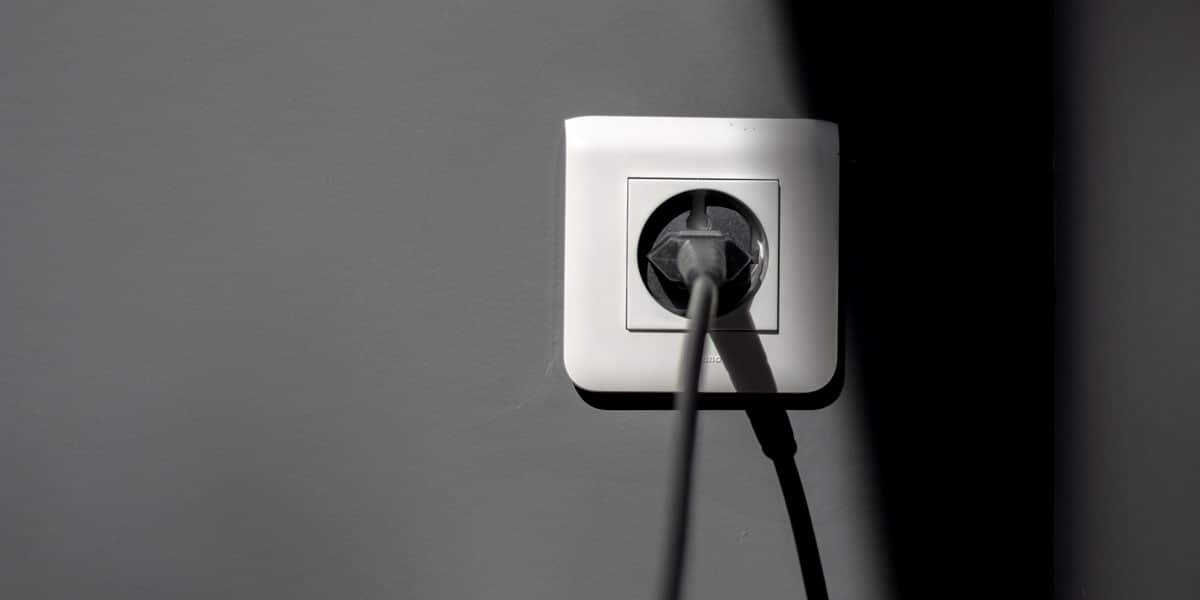
Ethical redundancies continue to be missing from the Australian workforce
Opinion + AnalysisBusiness + Leadership
BY The Ethics Centre Nina Hendy 16 JAN 2024
Telling staff that they have been made redundant is one of the most difficult parts of anyone’s job. But what’s consistently lacking from these hard conversations is human compassion.
All too often, there are glaring examples of a genuine lack of concern or care being shown by major companies forced to let people go.
Think about it for a second. A person’s identity is wrapped up in what they do for work. After introducing ourselves in a social setting, the next thing we usually share about ourselves is what we do for work.
When Director of The Ethics Centre’s Ethics Alliance, Cris Parker called out the need for a rethink of redundancy done #ethically on LinkedIn recently, plenty of workers chimed in about their own experiences of tragic redundancy stories.
One senior manager revealed he wasn’t even paid a redundancy when being laid off by an Australian company some years ago. Management got around this because the law states that they don’t have to pay redundancy if there are less than 15 employees in the company.
He admits that he still struggles with what happened to him all these years later and wants to see the law changed, admitting that the process was unethical, resulting in people left unsupported and left to struggle financially.
The closed door meeting you didn’t expect
No matter how committed you are to your role, suddenly being made redundant can be an emotionally crippling experience.
But it’s all too common. Media reports reveal that 2023 has been a year of mass redundancies as profits have been squeezed. Nearly 23,000 Australians have been laid off in reported redundancy rounds this year in response to rising interest rates and stubbornly high inflation.
But the real number of actual redundancies is likely to have been much higher as employers only need to notify Services Australia when they lay off more than 15 staff members.
Among the cuts has been KPMG, which announced 200 redundancies in February. Star Entertainment laid off 500 staff in May, while Telstra cut nearly 500 staff in July. The big banks have also been slashing jobs, collectively cutting more than 2000 jobs, according to media reports. There are also examples of companies pushing for staff to leave if they don’t return to the office.
Back in the pandemic, employers were more compassionate in many ways. We saw into our boss’s homes and personal lives and heard about the challenges they were facing. Bonds that haven’t been seen before in the workplace were formed.
At the time, a huge 99% of workers felt that they were working for an empathetic leader in the pandemic, according to KornFerry statistics. This is twice as high than pre-Covid, and it has shaped a new normal that employers need to recognise, even though they may now be facing financial pain amid a much more complex economic time.
Redundancies announced over the lunchroom speaker
Qantas Airways was among the many companies to downsize teams in the wake of Covid, as work was in short supply. In a bid to save a buck, Qantas Airways replaced the ground handling function with outsourced workers, which the Federal Court has since found to be illegal because the airline failed to engage in proper consultation and communication.
In a particularly brutal approach, Qantas reportedly told the 1700 workers about their upcoming dismissal via a lunchroom speaker with no prior warning, which doesn’t demonstrate empathy or compassion.
The case reminds Mollie Eckersley, ANZ operations manager for BrightHR of the US-based Better.com.au CEO who made headlines for making 900 of his staff redundant via an impersonal Zoom call.
She’s the first to accept that making redundancies can’t always be avoided in a bid to keep businesses viable, but cautions that how redundancies are announced to staff can have lasting ramifications on a person.
Approaching job cuts with a transparent, open and empathetic perspective will assist what is already a difficult experience. If not done well the negative impact on the culture is longstanding.
“The Qantas case has highlighted and served a cautionary tale for other businesses considering redundancy plans for its employees. There’s a clear need for robust records – otherwise businesses risk legal action and irreparable damage to reputation. Specific steps must be followed to ensure the process is fair and legal,” says Eckersley.
The rules state that the employer must initiate a meeting with the employee to discuss proposed changes, and that in that meeting, the staffer should be allowed to express concerns, provide feedback and suggest alternatives to redundancy.
But what about the ethical part of this process? People need to be treated with compassion, and giving the employee reasons for letting them go can help soften the blow.
Asking who might like to take a redundancy can be a good first step, because some employees might already have one foot out the door.
Organisations need to ensure they are acting in line with their values. Integrity, care and ethics need to be embedded into the process of making people redundant, particularly when those difficult decisions are made and there are very real human consequences.
This can be done by ensuring that your organisation has a purpose that can inspire those who remain, and be transparent about the reasons for the redundancy, rather than letting them wonder if they might be next.
A great deal of consideration also should be given to the timing of a redundancy announcement. Alternatives to redundancy, such as offering staff shorter working weeks or even reducing pay for a prescribed period of time, should also be considered.
Growing unemployment, mental health issues and the treatment of workers isn’t being addressed by the largest companies using redundancy as a lever amid economic woes, and our government seems intent on allowing the status quo to continue.
We’re all human beings, after all.

Ethics in your inbox.
Get the latest inspiration, intelligence, events & more.
By signing up you agree to our privacy policy
You might be interested in…
Opinion + Analysis
Business + Leadership
Ask the ethicist: Is it ok to tell a lie if the recipient is complicit?
Opinion + Analysis
Business + Leadership, Relationships
Moving work online
Opinion + Analysis
Business + Leadership, Politics + Human Rights
Who’s afraid of the strongman?
Opinion + Analysis
Business + Leadership
The pivot: ‘I think I’ve been offered a bribe’
BY The Ethics Centre
The Ethics Centre is a not-for-profit organisation developing innovative programs, services and experiences, designed to bring ethics to the centre of professional and personal life.
BY Nina Hendy
Nina Hendy is an Australian business & finance journalist writing for The Financial Review, The Sydney Morning Herald, The Age and The New Daily.
Big Thinker: Audre Lorde
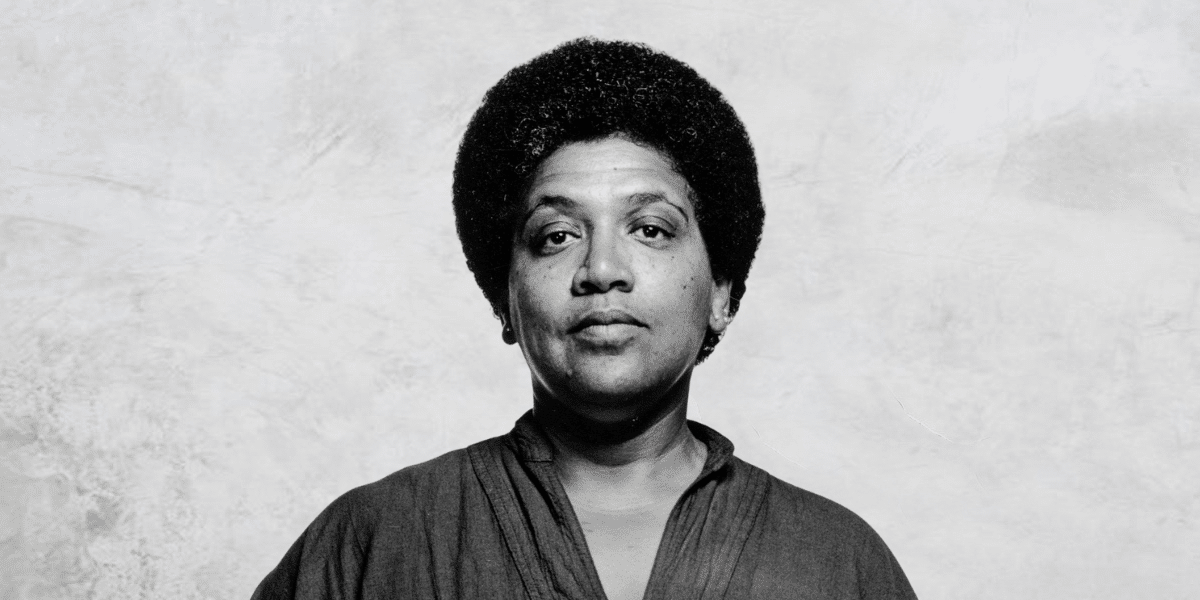
Big Thinker: Audre Lorde
Big thinkerPolitics + Human RightsSociety + Culture
BY The Ethics Centre 11 JAN 2024
Professionally a poet, professor and philosopher, Audre Lorde (1934-1992) also proudly carried the titles of intersectional feminist, civil rights activist, mother, socialist, “Black, lesbian [and] warrior.” She is also the woman behind the popular manifesto “the master’s tools will never dismantle the master’s house.”
Born Audrey Geraldine Lorde in New York City, to Frederic and Linda Belmar Lorde, on the 18th of February 1934, Lorde fell in love with poetry as a form of expression at a young age.
“I used to communicate through poetry,” she recalled in conversation with Claudia Tate for Black Women Writers at Work. “When I couldn’t find the poems to express the things I was feeling, that’s what started me writing poetry,” she said. Lorde was thirteen.
Alongside her education at Hunter High School in New York, and working on the school’s literary magazine, she published her first piece of literature in the 1951 April issue of Seventeen Magazine. She earned a Bachelor of Arts from Hunter College in 1959, preceding a master’s degree in library science in 1961 from Columbia University. Following that, Lorde worked as a librarian for public schools in New York City from 1961 to 1968, working her way to head librarian of Manhattan’s Town School. In 1980, Lorde and her friend, a fellow writer and activist, created a publishing house, ‘Kitchen Table: Women of Color Press.’ Throughout these years, Lorde was prolific and wrote some of her most recognised volumes of poetry. A full discography of her work can be found at the end of this article.
Authorship and legacy
Expression of self and personal philosophy through literature became a cornerstone of Audre Lorde’s life and one of her greatest contributions to the discourse on discrimination and equality today.
A proud feminist, Lorde’s authorship strived to offer an authentic depiction of the female experience; the good, the bad and the complex. She felt academic discourse on feminism was white and heterosexual centric, lacking consideration of the lived realities of Black and queer women. Thus, she put the stories of these women at the centre of her literature.
Lorde’s philosophy focussed particularly on intersectional discrimination and academic discourse’s inability to accommodate it. She revered differences amongst humans, arguing true equality can only be achieved through celebrating rather than homogenising our different identities.
Third Wave Feminism
Lorde was a prominent member of the women’s and LGBTQIA+ rights movements during the second wave of feminism. As a woman with many of her own labels, Lorde used her lived experience and literary expertise to shine a light on the experience and voices of other women with multiple signifiers. She implored society to confront racist feminism, the nuances of the Black female experience and the cognitive dissonance between educating yourself on feminism whilst not bearing witness to the experiences of all women, – particularly women of colour whose intellectual labour and contributions to such academia have been so routinely overlooked. Thus, helping kickstart the third wave of feminism, also spearheaded by another big thinker, Kimberle Crenshaw.
Through her words, Lorde aimed to acknowledge and capture the pain as well as the joy she felt as an openly queer Black woman. This bare-all intent and celebration of individuality is particularly felt in her work, The Cancer Journals and her subsequent public encouragement of other breast cancer survivors to wear their mastectomies on their chest, rather than accept prosthesis purely for aesthetic motivations. “It is that very difference that I wish to affirm… I lived it, I survived it, and wish to share that strength with other women.”
Philosophy on difference
Lorde was an advocate for difference amongst human beings. For her, difference was the key to eradicating discrimination and moving forward in unity. As we constantly reevaluate what it means to be human, what we hold dear and the ethical pillars we lean on to guide us, Lorde philosophised that it was vital we harness rather than fear that which separates us from our friends, peers and enemies. Rather than homogenising humanity, the future of equality relies on our ability to relate across differences. Finding community is not about conforming, it is about accepting. It must be an act of opening up, not of shutting down.
Lorde examined difference particularly through an intersectional feminist lens. Identifying and subverting the conditioning of women to view their differences as causes for separation and self-judgement.
What we need first, however, is courage. To have our beliefs and perspectives stretched and challenged as we begin the journey of embracing that which makes us different from those around us.
Intersectionality
Lorde was acutely aware of and vocal about the pressure on marginalised people to divide their identities in order to fight for recognition of their discrimination. Academia was constructed to examine, debate and interrogate ways of being. At the time, it was established by white men, and thus contributions to this school of thought were limited to the lived realities and perspectives of these men. As a result, the notion of a human norm came about, and this norm was white, male, heterosexual and often, but not always, wealthy, educated and upper class. Every deviation from this ideal was considered a handicap and treated as such.
In her speech at the New York University Institute for the Humanities, where she debuted her admonishment: “the master’s tools will never dismantle the master’s house,” Lorde cautioned people of colour and other marginalised demographics against the pressure to conform to the limited criteria of ‘acceptable’ laid out by discrimination discourse in white academia, in order to have their needs met. She argued fighting for equality within a system with the notion of a human ideal will only lead to disappointment. True and deeply entrenched equality can only happen through an entire paradigm shift; the unravelling of a human norm in the first place.

Ethics in your inbox.
Get the latest inspiration, intelligence, events & more.
By signing up you agree to our privacy policy
You might be interested in…
Opinion + Analysis
Society + Culture
Ask an ethicist: Am I falling behind in life “milestones”?
Opinion + Analysis
Society + Culture
What does Adolescence tell us about identity?
Explainer
Society + Culture, Politics + Human Rights
Ethics Explainer: Moral Courage
Opinion + Analysis
Society + Culture
Schools of thought: What is education for?
BY The Ethics Centre
The Ethics Centre is a not-for-profit organisation developing innovative programs, services and experiences, designed to bring ethics to the centre of professional and personal life.
Why certain things shouldn’t be “owned”

Why certain things shouldn’t be “owned”
Opinion + AnalysisPolitics + Human Rights
BY Nick Jarvis 10 JAN 2024
What can we truly “own”, and are there things in this era of late capitalism where our current, long-evolved legal and philosophical definitions of ownership are inadequate?
The audience at The Ethics Centre’s ‘Ethics of Ownership’ event was posed these questions, and others, with stimuli scenes by guest actor Sheridan Harbridge.

In Common Law, ownership entails the “right to possess a thing, to use it to the exclusion of others, to alter it, to profit from it, and to dispose of it,” Ethics Centre Executive Director Simon Longstaff said.
This current definition derives from John Locke’s labour theory of property, that when someone mixes their labour with commonly held or natural “God-given” land it can become their private property.
However, Locke qualifies, this applies “…at least where there is enough, and as good, left in common for others.” Meaning a person should not be able to own more than they can use without it going to waste.
A series of quandaries posed to the audience at ‘The Ethics of Ownership’ produced some interesting and instructive dissonance in the way we think about ownership. The story of a woman who took apples rotting on the ground from an orchard to feed her starving family, knowing she’d been denied the right to take them, produced an interesting take on qualifying factors.

Most of the audience thought she had committed theft, but the majority thought she shouldn’t be prosecuted, because the orchard owner had acted unethically in denying his unused apples to the starving family. Locke would argue that the man had forfeited his natural right to the apples as his property as they were going to waste, and that people have a legitimate claim.
17th and 18th Century philosophers Hobbes and Hume held that there “could be no natural right of property ownership, rather the various rights of ownership were created by the state (or some less formal community) and were, thus, a human creation,” and the state or community can change these rules as the imperatives and circumstances change.
These Enlightenment-era theories were established in early imperial/colonial Capitalism, as defined by Karl Marx, amid agricultural and industrialising societies. Marx argued that individuals should own all productive resources in common. This is because when one class (the proletariat) produces goods with their labour, on behalf of an ownership class that derives benefit, the proletariat becomes alienated from those goods and their labour when they cannot afford to own them.
Curiously, Ayn Rand, although a fervid Capitalist, also argued that, “The man who produces while others dispose of his product, is a slave”. Rand, however, argued this as a case for individual rights above all others.
When it comes to ownership over our own selves, a slim majority thought you should be able to sell your own organs, because “your body is the only thing that’s 100% yours,” as one audience member put it. Significantly more of the audience thought you shouldn’t be allowed to sell yourself into slavery, which links back to our (now) deeply held belief that you cannot own another person because, as Emmanuel Kant put it, no person can ever become a means to someone else’s end.
Locke did not extend common property rights to slaves, arguing that slaves cannot lay claim to property as they’re not considered part of civil society, “having forfeited their lives and, with it, their liberties, and lost their estates, and being in the state of slavery, not capable of any property.”
The audience’s answers show how much we value our personal autonomy over our bodies, and gave rise to the fact that, in Common Law countries, you don’t in fact own any part of your body. The “No Property Rule” prohibits individuals from claiming ownership over their own bodies or genetic material.
Interestingly, this law arose as a response to slavery entrenched by various judicial decrees over the centuries, including Shanley v Harvey (1763), where the judge decreed that, “[a]s soon as a man sets foot on English ground he is free.” With ownership of another human eventually ruled indefensible by the courts, and reasons given ranging from “from ecclesiastical law to grave robbing”, a person’s ownership of their own body was abolished as well.
Ownership comes with responsibilities as well as rights – you have the right to exclude others from using your property, but you also have a responsibility to protect that property from improper use by others, for instance, keeping weapons and dangerous animals contained from improper use. You also have a responsibility to use that thing, Locke argued, to maximise its productivity for the good of all society.
The audience consensus was that “owning” things that are of public value, such as artworks and the environment, should not confer the right to do what you like with your property. I would extend this concept to intellectual property such as patents for life saving, or life-improving, medications that private companies or individuals are currently allowed to own and may charge what they like for.
The argument of one audience member was that “things of shared value, while they can be owned in a legal sense, ownership should be more of a role of caretaking,” or akin to borrowing, where you’re duty-bound to return it in the same state you received it in so others can use it after. In the case of inheritance, this ethical obligation to caretake for the thing in possession would pass to whoever inherits it.
Does this mean that our sense of ownership, as defined by law precedent derived from Locke, is no longer fit for purpose, in an era of alienation from labour and destructive, extractive use of natural resources? Does a mining or forestry company have the right to own and ruin a piece of land because they have expended effort to harvest its natural resources, but not maintained or improved it?
When applied to things of common value to everyone on the planet, such as the environment, access to culturally valuable works of art, access to sun, water, shelter, sustenance, or medicine, our legally established definitions of ownership start to look inadequate.
Locke’s definition also didn’t account for indigenous concepts of ownership. For Indigenous Australians, the land owns the people and every aspect of their lives – spiritual, material, social, cultural – is connected to it and its maintenance. You cannot own property and derive maximum benefit from it to its detriment when you’re morally and culturally bound to be a caretaker or custodian for that property.
Perhaps our whole definition of private ownership needs a contemporary rethink when it comes to these objects, resources and ideas of inherent common value. We don’t need to abolish private ownership, but we do need to re-establish rights and responsibilities of use within the concept of the “common good”.

Ethics in your inbox.
Get the latest inspiration, intelligence, events & more.
By signing up you agree to our privacy policy
You might be interested in…
Big thinker
Politics + Human Rights
Big Thinker: Judith Jarvis Thomson
Opinion + Analysis
Politics + Human Rights
Hey liberals, do you like this hegemony of ours? Then you’d better damn well act like it
Opinion + Analysis
Health + Wellbeing, Politics + Human Rights, Relationships
Ethics in a time of coronavirus
Opinion + Analysis
Health + Wellbeing, Politics + Human Rights
Disease in a Time of Uncertainty
BY Nick Jarvis
Nick Jarvis is a Sydney-based editor and writer on the arts, culture and technology. He's written for The Ethics Centre, the Walkleys, Sydney Festival, Sydney Film Festival, Vice and many Australian arts organisations. He currently works for Sydney Festival.
A note on Anti-Semitism

I was recently proud to join hundreds of others in signing an open letter condemning Anti-Semitism, Islamophobia and all other forms of discrimination.
The fact that such a letter needed to be written is deeply troubling. However, the world has been witness to the horrific consequences of remaining silent when the beast of race-based hatred begins to stir.
The great attraction of the statement I signed lay in its embrace of a positive principle that extends to every person – irrespective of their identity, conduct or circumstances. The principle of ‘respect for persons’ is the foundation upon which all human rights ultimately rest. It is an affirmation that every person has an irreducible, intrinsic dignity that cannot be reduced or forfeited. Although the rising incidence of Anti-Semitism may have prompted the statement, its concern extends to all who are at risk of harm.
Yet, what exactly is this harm? And how do we properly distinguish between vile acts of Anti-Semitism, on the one hand, and mere criticism on the other? For example, is holding Hamas accountable for the death of innocent non-combatants either ‘Anti-Palestinian’ or ‘Islamophobic? I think not. Nor is it Anti-Semitic to hold the State of Israel to account for acting in conformance with the laws of armed conflict. Both can be held accountable to the same standard without denying the intrinsic dignity of any individual or group.
Expressing sympathy for the plight of ordinary Palestinians, caught in the crossfire of an historically intractable dispute, does not amount to Anti-Semitism. Nor is it ‘genocidal’ to support the existence of the State of Israel (even while condemning many of the actions of its government).
Anti-Semitism is a very distinctive and potent form of evil. It denies the full and equal humanity of Jewish people – and endorses the destruction of their religion, culture, history and bodies. It has its own recognisable symbols – the Nazi Swastika, the ‘Heil Hitler’ salute (and associated symbology) – and revels in the despicable iconography of gas chambers and other elements in the apparatus of the Holocaust. It should be monitored and restrained with every ounce of energy and vigilance we can bring to bear. For where Anti-Semitism lives so there breeds all the other cesspools of hatred and despair.
So, it is unbearably sad when people loosely apply the label ‘Anti-Semitic’ on any occasion where Jewish people experience even the slightest form of annoyance, anger or discomfort.
We have been witness to an example of such ‘fast and loose’ language in the last couple of days. The ‘trigger’ incident was a decision by three actors to wear Palestinian Keffiyeh during the curtain call for Sydney Theatre Company’s opening performance of Chekhov’s The Seagull. The actors took this action without STC’s knowledge and without the support of the other cast members. Whether one agrees with the sentiment behind that statement is beside the point. In practice, they hijacked the company’s stage to make an entirely private, political statement. Now everyone else is left to pick up the pieces.
STC’s audience, supporters and donors are entitled to be annoyed by what occurred. So are the Board, management and members of the STC who had no knowledge of the planned stunt. Yet, nothing that was done on the night amounts to an act of Anti-Semitism. Naïve, perhaps. Unauthorised … certainly! Anti-Semitic … not at all.
To apply that label in the current circumstances is understandable when one considers the raw nerves and ancestral fears that are chafed in response to rising incidents of actual Anti-Semitism. However, over-reacting in this case (or others like it) brings about its own damage – especially when one part of our diverse, multicultural community bands together to boycott (‘cancel’) what it finds offensive. This approach did not help the cause of Christians and Muslims who have sought to censor those who offend or criticise. And I doubt that it will help the Jewish community. A diverse and vibrant community is made to seem monolithic in its outlook and concerns – separate from the whole.
I do not know if there are any Anti-Semites working at STC. However, I would be amazed if there were not at least some ardent critics of Israel (as there are amongst many Jewish people – the world over). But to be a critic of Israel is not the same as being an ‘Anti-Semite’. Of course, one can be both – but the distinction is vital and we all need to discern and apply the difference
Jewish people have every right to speak out when offended (a right we all enjoy). In doing so, they are often driven by fears grounded in millennia of persecution culminating in the Nazi’s ‘final solution’.
We should never be silent or indifferent in the face of Anti-Semitism. However, I fear that being fast and loose in labelling events and people as ‘Anti-Semitic’ risks undermining the significance of that terrible point in human history, which we must never do.
For the Holocaust stands for far more than the fate, alone, of the Jewish people. It is a potent warning of what horrors lurk within the human psyche and the power of that warning must never lose its place in humanity’s collective memory – for it threatens us all.

BY Simon Longstaff
Simon Longstaff began his working life on Groote Eylandt in the Northern Territory of Australia. He is proud of his kinship ties to the Anindilyakwa people. After a period studying law in Sydney and teaching in Tasmania, he pursued postgraduate studies as a Member of Magdalene College, Cambridge. In 1991, Simon commenced his work as the first Executive Director of The Ethics Centre. In 2013, he was made an officer of the Order of Australia (AO) for “distinguished service to the community through the promotion of ethical standards in governance and business, to improving corporate responsibility, and to philosophy.” Simon is an Adjunct Professor of the Australian Graduate School of Management at UNSW, a Fellow of CPA Australia, the Royal Society of NSW and the Australian Risk Policy Institute.
Ethics in your inbox.
Get the latest inspiration, intelligence, events & more.
By signing up you agree to our privacy policy
You might be interested in…
Opinion + Analysis
Politics + Human Rights, Relationships
To Russia, without love: Are sanctions ethical?
Big thinker
Politics + Human Rights, Relationships
Big Thinker: Adam Smith
Opinion + Analysis
Politics + Human Rights
Hey liberals, do you like this hegemony of ours? Then you’d better damn well act like it
Big thinker
Politics + Human Rights


